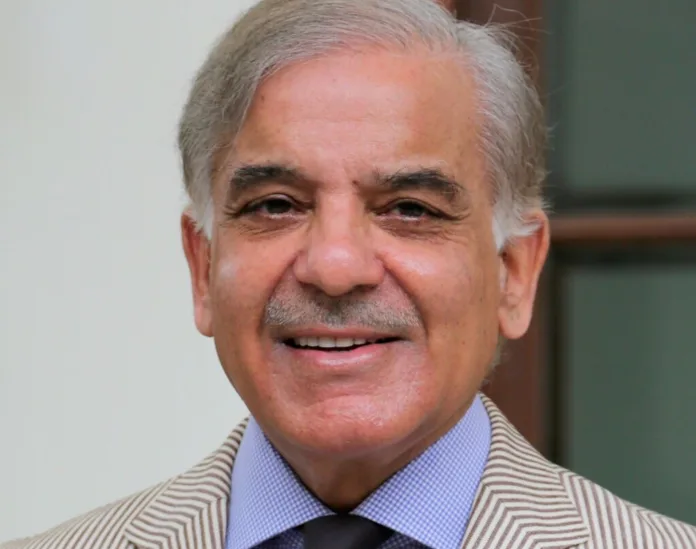Finance Minister Aurangzeb insists on new retail taxes and structural reforms to secure a $7 billion IMF loan, despite significant public backlash and approval delays
In a bid to secure a $7 billion loan from the International Monetary Fund (IMF), Pakistan’s government is pushing forward with crucial reforms and new tax measures, even as it faces growing public discontent. Prime Minister Shehbaz Sharif and Finance Minister Muhammad Aurangzeb are determined to meet the IMF’s conditions, which they hope will stabilize the country’s ailing economy and mark the end of reliance on international bailouts.
The IMF’s 37-month loan programme agreed upon in July, requires approval from the IMF Executive Board and the confirmation of necessary financing assurances from Pakistan’s development and bilateral partners. Despite Moody’s recent upgrade of Pakistan’s credit rating, the IMF’s board has yet to include Pakistan’s loan approval on its agenda, raising concerns about potential delays.
Embed from Getty ImagesSharif, expressing optimism, hopes this loan will be Pakistan’s last. He sees it as a gateway to a new economic phase for the country. Finance Minister Aurangzeb echoed this sentiment, emphasizing the need for structural reforms and enhanced self-sufficiency to ensure Pakistan does not need future IMF interventions. The government has already signed a Staff Level Agreement (SLA) with the IMF and is working to secure its approval.
A key aspect of the IMF agreement involves new taxes on the retail sector, which have sparked nationwide protests. Retailers have strongly opposed these taxes, which were introduced in the June budget as part of Pakistan’s effort to meet ambitious revenue targets. Despite threats of strikes and public outcry, Aurangzeb has vowed to enforce these taxes, highlighting them as essential for winning IMF approval.
The government faces additional hurdles, including delayed financing assurances and unresolved energy sector debts. Reports indicate that financing assurances from Pakistan’s partners have not yet been confirmed, and unpaid subsidies in the power sector remain a concern for the IMF. The Punjab province’s information minister, Azma Bukhari, has stated that the federal government and the IMF have not yet addressed the issue of electricity subsidies, further complicating the approval process.
The IMF has emphasized the importance of addressing Pakistan’s power sector debt, a pressing issue that has persisted despite a previous $3 billion bailout that ended in April. This bailout led to higher energy tariffs, which have adversely affected the poor and middle class, highlighting the ongoing economic challenges Pakistan faces.
As Prime Minister Sharif continues his efforts to meet the IMF’s conditions, he remains hopeful that these reforms will lead to long-term economic stability. The government’s ability to balance fiscal responsibility with public sentiment will be crucial in determining the success of this loan programme and Pakistan’s future economic trajectory.
Analysis
Political:
The IMF loan negotiations are pivotal for Prime Minister Shehbaz Sharif’s administration, impacting its political standing and future governance. Successfully securing the loan and implementing IMF conditions could bolster Sharif’s position by demonstrating effective economic management. Conversely, failure to meet these conditions or delays in approval could undermine the government’s credibility and fuel political instability. Sharif’s commitment to these reforms reflects a strategic move to strengthen Pakistan’s economic stability and reduce dependence on international bailouts.
Social:
The introduction of new retail taxes has sparked widespread protests, reflecting the broader social impact of economic reforms. The backlash from retailers and the public highlights the strain these policies place on ordinary citizens and small businesses. The protests underscore the tension between necessary fiscal adjustments and the socio-economic burden placed on various segments of society. The government’s response to these protests and its ability to address public concerns will be crucial in maintaining social stability and ensuring the successful implementation of economic reforms.
Racial:
The new tax policies and economic reforms do not directly address racial issues but have significant implications for various demographic groups. The impact of increased living costs and financial strain disproportionately affects lower-income households, which often include marginalized communities. Ensuring that these groups are not disproportionately burdened by the reforms is essential for maintaining social equity and addressing any indirect racial implications of the economic policies.
Gender:
The economic reforms and tax policies have indirect effects on gender equity. Women, particularly those in lower-income households, could be disproportionately affected by the increased financial pressures and living costs resulting from these reforms. The government’s approach to mitigating these impacts and ensuring that women and vulnerable populations are not unduly affected will be important in addressing gender equity concerns and promoting inclusive economic growth.
Economic:
The $7 billion IMF loan is crucial for stabilizing Pakistan’s economy and addressing its debt issues. The loan conditions, including structural reforms and new taxes, are designed to improve fiscal responsibility and economic stability. The successful implementation of these conditions could lead to enhanced investor confidence, reduced debt burden, and long-term economic benefits. However, the immediate economic impact includes potential public backlash, increased financial strain on businesses and households, and unresolved issues in the power sector.
